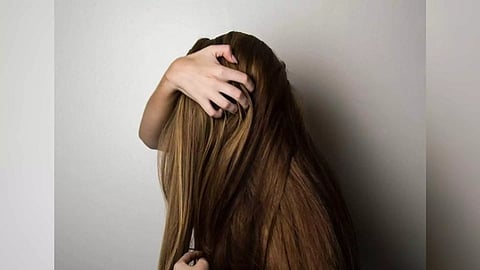

WASHINGTON: The genetic basis and polygenic nature of hair whorl orientation are both shown by the first gene mapping study on human scalp hair whorls.
An article in the Elsevier-distributed Journal of Investigative Dermatology reports the discovery of four linked genetic variants that are likely to have an impact on hair whorl orientation.
A hair whorl is a group of hair that develops in a circular pattern around a point that is dictated by the direction of the hair follicles. The scalp hair whorl pattern, a clearly visible human characteristic, can be described typically using the whorl number (single or double whorl) and whorl direction.
Since odd whorl patterns have been observed in persons with poor brain development, understanding the genetic basis of whorl patterns may help in unravelling important biological processes.
After the initial genome-wide association study (GWAS) on human scalp hair whorls was carried out in 2,149 Chinese adults from the National Survey of Physical Traits cohort, a replication study was carried out in 1,950 Chinese participants from the Taizhou Longitudinal Study cohort.
Lead investigator Sijia Wang, PhD, Shanghai Institute of Nutrition and Health, explained, “We know very little about why we look like we do. Our group has been looking for the genes underlying various interesting traits of physical appearance, including fingerprint patterns, eyebrow thickness, earlobe shape and hair curliness. Hair whorl is one of the traits that we were curious about.
The prevailing opinion was that hair whorl direction is controlled by a single gene, exhibiting Mendelian inheritance. However, our results demonstrate that direction is influenced by the cumulative effects of multiple genes, suggesting a polygenic inheritance.”
Four related genetic variations are found in the research (at 7p21.3, 5q33.2, 7q33, and 14q32.13).
By controlling the cell polarity of hair follicles, these genetic variations are expected to affect the orientation of the hair whorls. Closure and expansion of the cranial neural tube may also be affected.
Professor Wang continued, “While previous work proposed the hypothesis of associations between hair whorl patterns and abnormal neurological development, no significant genetic associations were observed between hair whorl direction and behavioral, cognitive, or neurological phenotypes. Although we still know very little about why we look like we do, we are confident that curiosity will eventually drive us to the answers.”